Northern Ireland
The north of Ireland is rugged and green. A treeless landscape, crisscrossed by waterfalls and small streams. Wind, rain and lava have shaped the soil and the mountains, a deep discord and a bloody history the society.
Those who want to travel Northern Ireland must be prepared for harsh weather and a troubled past whose scars have shaped people and cities. Beauty and horror can be just a stone’s throw apart here.
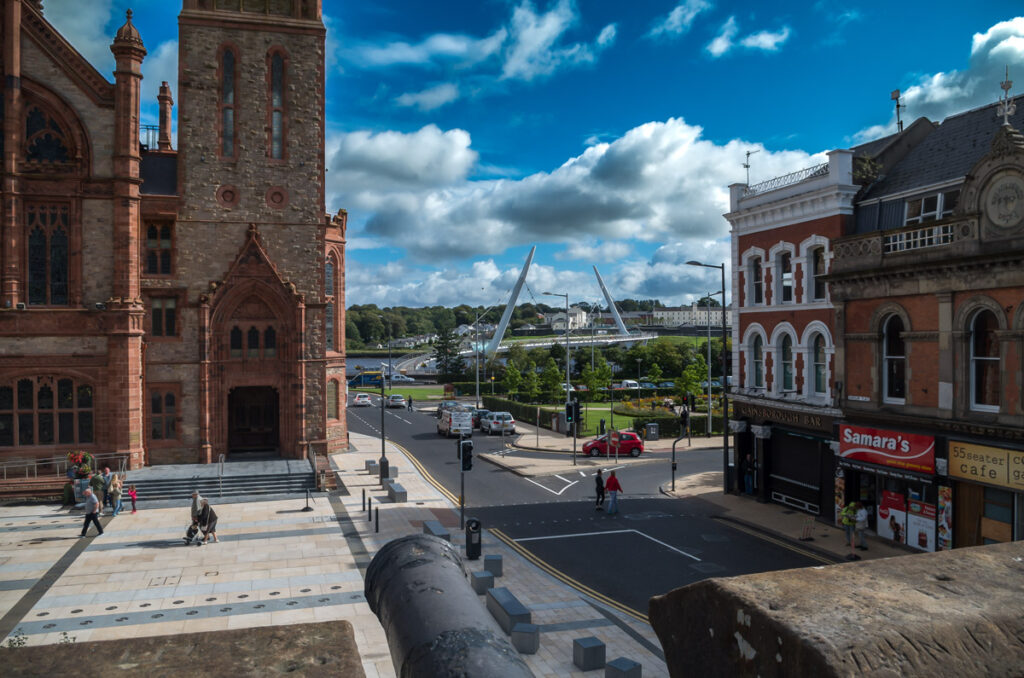
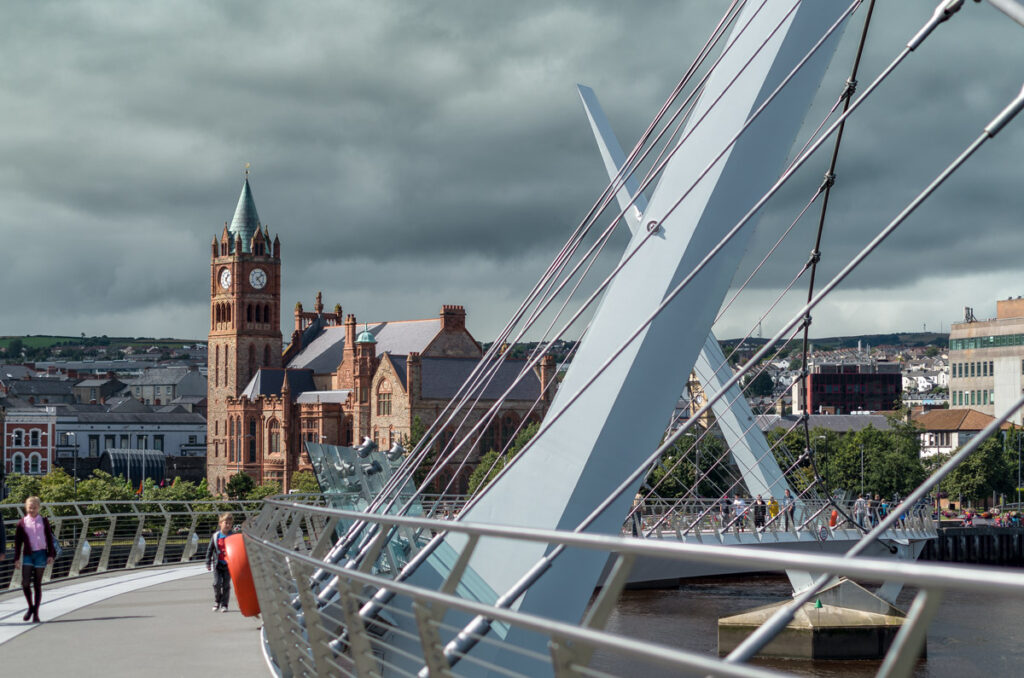
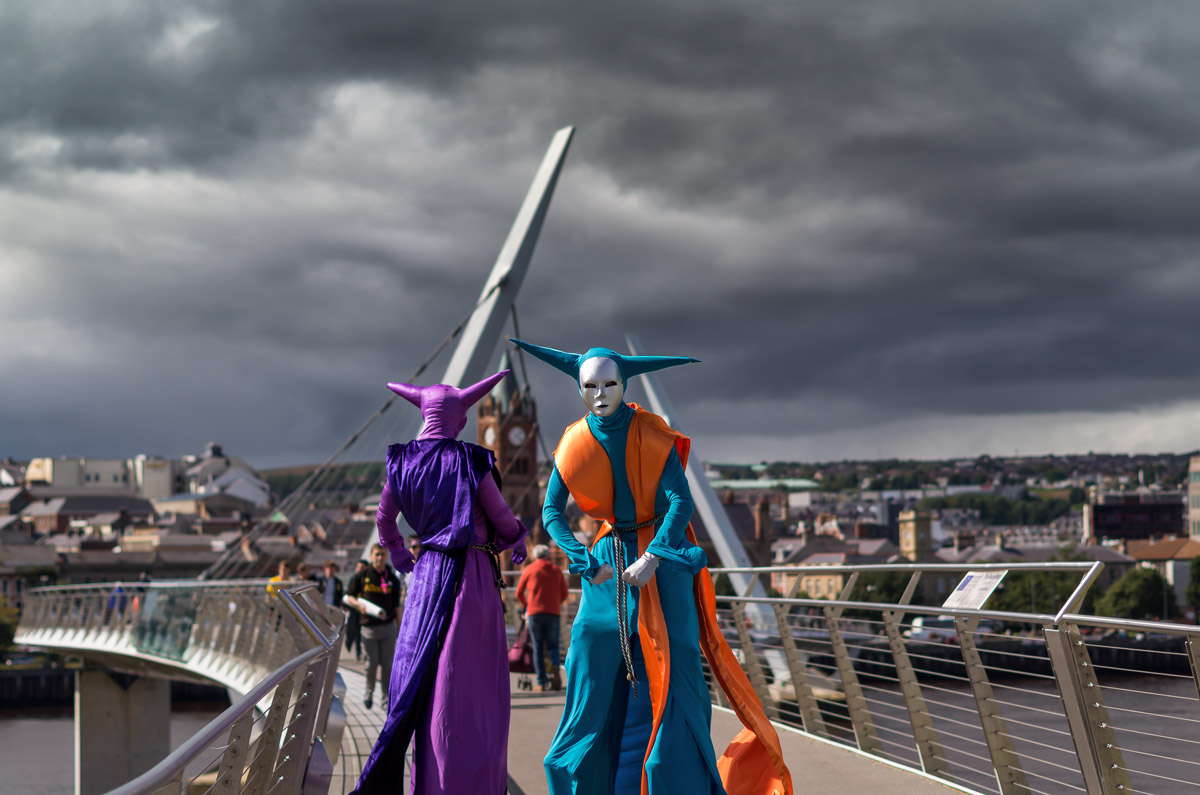
Belfast and Derry-Londonderry are working-class cities. Industry created jobs here, and when industry ailed, the jobs fell away. Gone are the days when people formed steel with pure muscle power and used it to build the once largest ship in the world: the Titanic. The heavy-duty cranes Samson and Goliath still tower some 100 meters into the air at the docks – silent, rusting witnesses to a time when order books were full. Everything seemed possible, except the downfall.
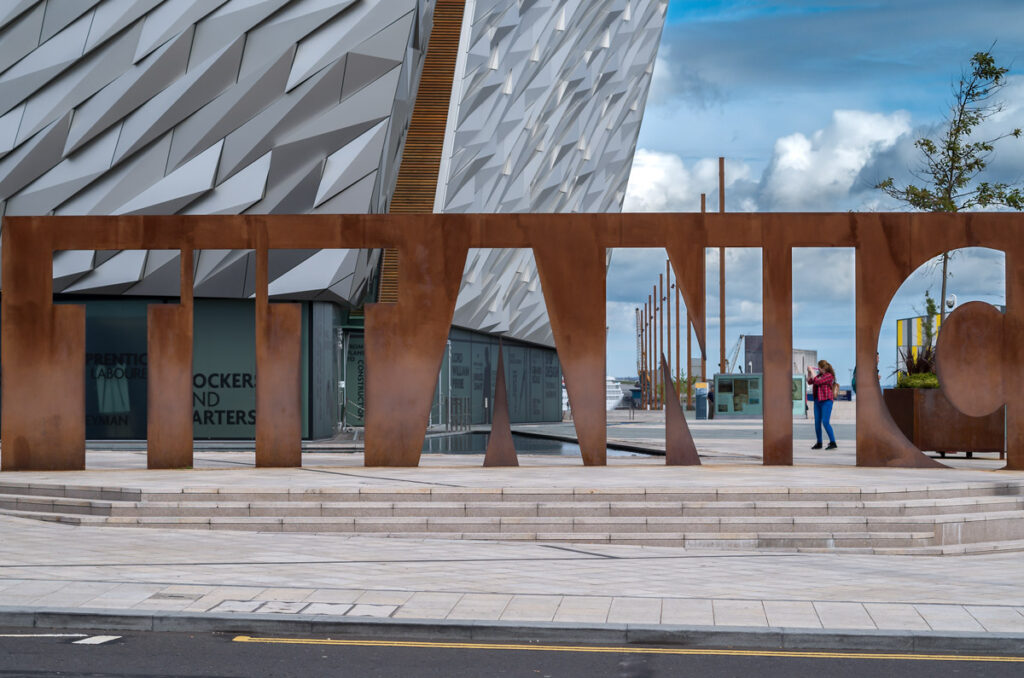
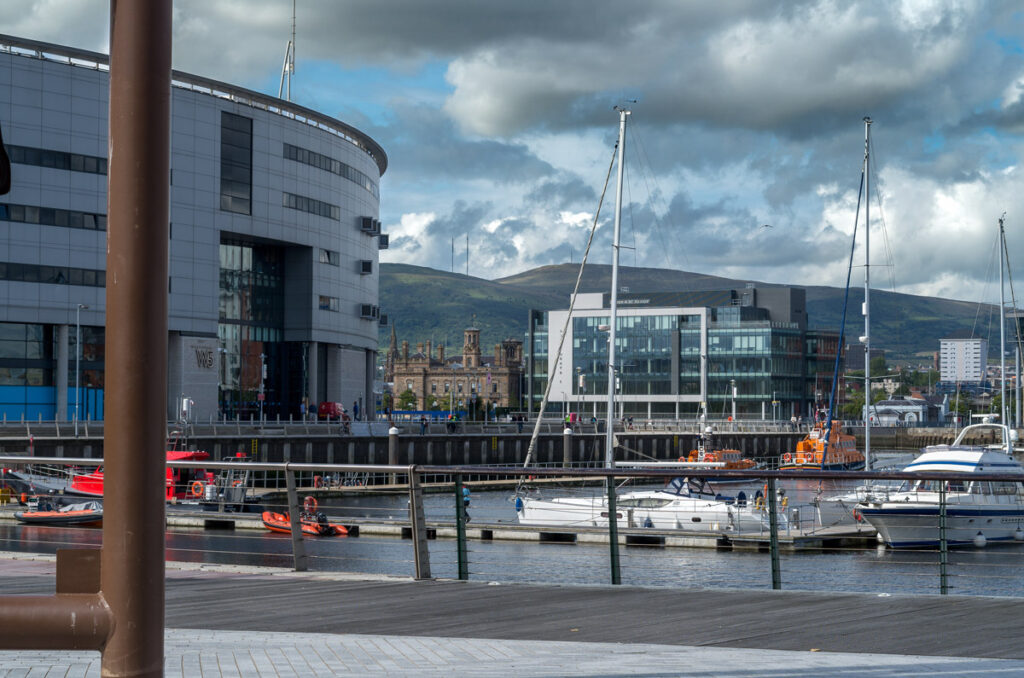
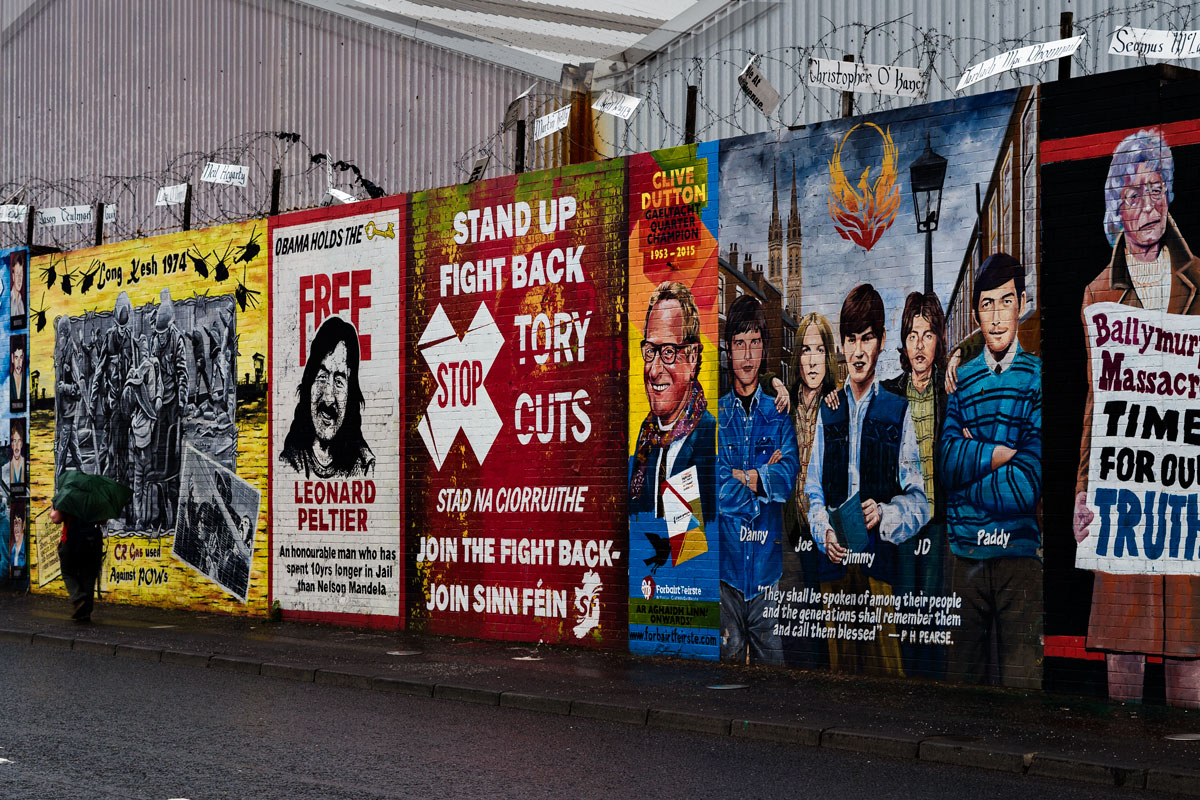
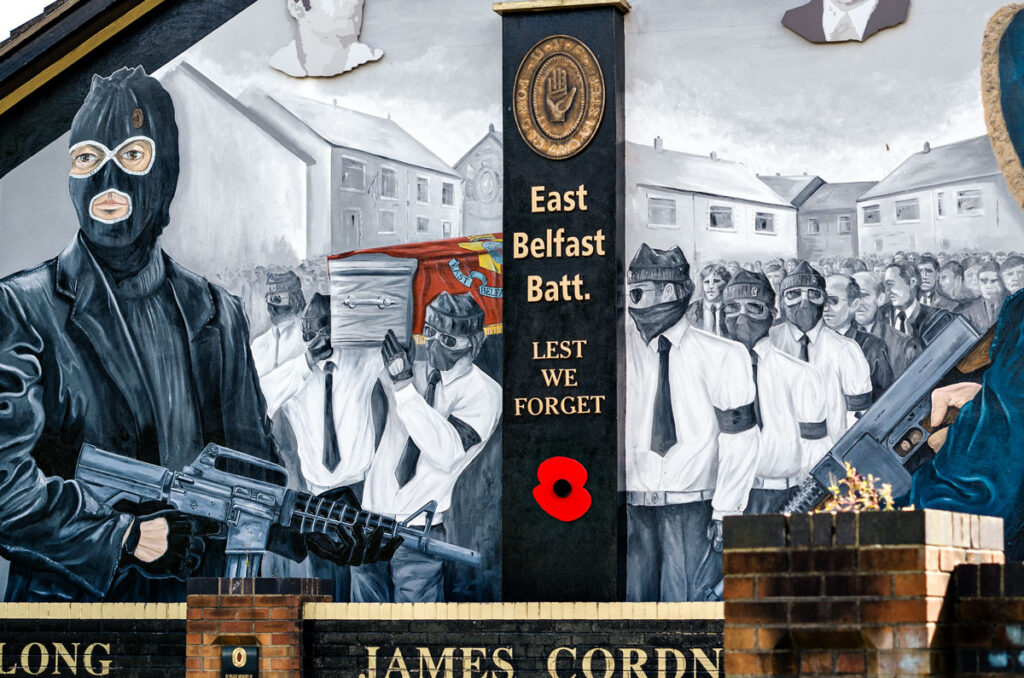
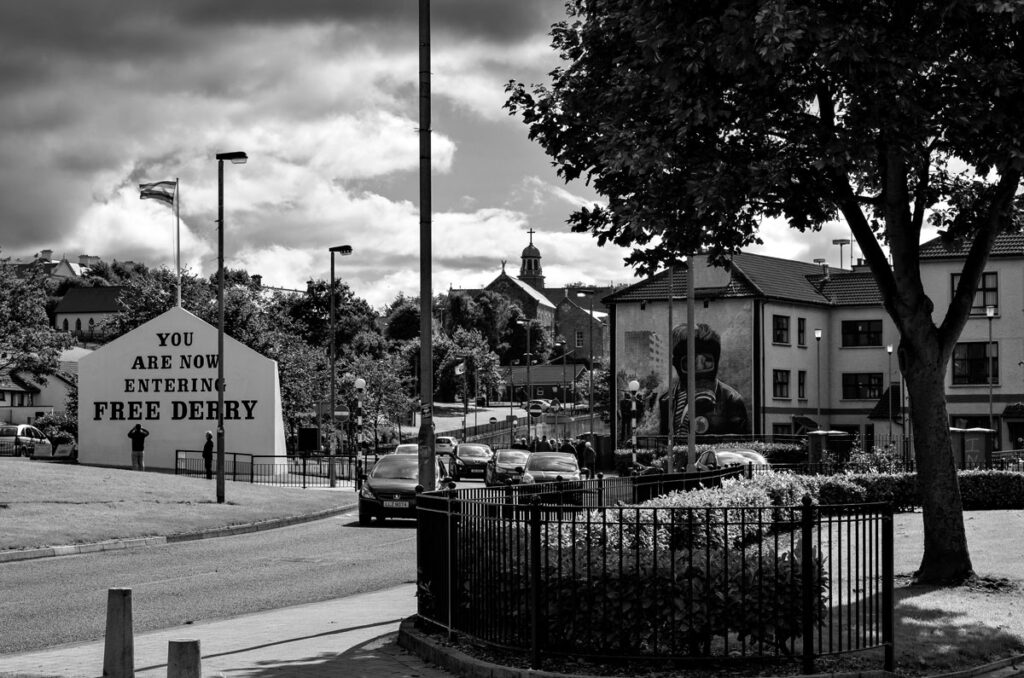
Fences and walls that separate entire neighborhoods in Belfast, keeping Catholics and Protestants apart. Colorful murals that remind, tell, warn. The Peace Bridge in Derry, which aims to bring together unionists on the east and nationalists on the west side of the Foyle River.
Northern Ireland is a country steeped in politics and history. The scars of the Northern Ireland conflict have never healed. The risk of violence flaring up again seems all too possible. Brexit showed how fragile peace is.
Info about our trip
We spent just under a week in Northern Ireland in August 2016. What should have been a hike along the Giant Causeway ended up in sightseeing, as it was raining heavily most of the time and the temperatures were only about 10-15°C. The week before it had still been summer temperatures … What we want to say: a trip to Ireland (especially to the north coast) means to be prepared for any weather. Sun, rain and wind can change every ten minutes.
As on the whole island of Ireland, you will find beautiful, but harsh nature. Be sure to spend two days in Belfast – visit the Titanic Museum, the harbor and many historical sites. There’s one thing you certainly shouldn’t do: travel to Northern Ireland without any prior knowledge of the country’s bloody history.
In England, as in Northern Ireland, you pay with British pounds. Food in particular is significantly more expensive than in Germany – especially if you want to eat fresh and healthy. However, there is also LIDL here, which seemed cheaper than the domestic supermarkets.
Since we were traveling as classic, poor backpackers, our meals were limited to self-cooking and ready-made food. Therefore, we can unfortunately not give you any information on the subject of “food”.
We stayed in Airbnbs in Belfast and Londonderry/Derry. At that time you could get into conversation with your hosts via Airbnb – which was cool, because we stayed with a political scientist in Belfast and he could explain some things about the Northern Ireland conflict to us. We had to abandon our original plan to camp mainly due to the weather. So always have an alternative ready.
In the cities of Belfast and Londonderry/Derry, there were neighborhoods where we definitely did not feel safe. This was due on the one hand to the obvious segregation of neighborhoods and housing complexes with walls and barbed wire, and on the other hand to the multitude of violence-representing graffiti and the knowledge of the bloody history. We have not had any negative experiences. Even though the situation is generally calm in Northern Ireland at the moment, you should be more vigilant as you might be on other trips.
We have not yet been to Northern Ireland with a child, so we cannot comment on the child-friendliness of the Northern Irish.
We took the train from Dublin to Belfast. In Northern Ireland itself, we went from A to B exclusively with scheduled buses, which worked smoothly and cheaply. Out of Northern Ireland in the direction of Galway, we took an intercity bus. For us, public transport was the best solution at the time, as we had not yet reached the age of 25 to take a rental car (as far as we know, most car rental companies in Ireland still demand a minimum age of 25).
